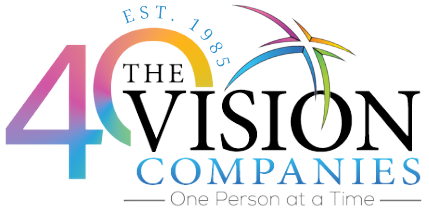
We’re sliding to the end of 2023 and gearing up for the New Year. It’s time to reflect on the dynamic landscape of hiring trends that shaped the year. Our year in review explores the trends that emerged and evolved in recruitment throughout 2023. Let’s take a closer look.
The Rise of Remote Work
The rise of remote work in recent years has transformed how businesses operate, driven by technological advancements and changing attitudes towards work-life balance. Many companies have adapted to this trend by offering flexible or hybrid work options, allowing employees to work remotely and in the office. This shift meets the demands of a modern workforce seeking increased flexibility and enables companies to tap into a broader talent pool by hiring employees from different geographic locations. Hybrid work models promote a more inclusive work environment, accommodating diverse needs and preferences. Organizations have invested in digital collaboration tools, virtual communication platforms, and cybersecurity measures to support this change, ensuring seamless connectivity and data protection for remote employees.
The Impact of AI-Driven Technology
Integrating AI technology impacts the workplace, revolutionizing how tasks are accomplished and decisions are made. AI tools and systems stream repetitive tasks, enhance efficiency, and allow employees to focus on more creative and strategic aspects of their jobs. From chatbots handling customer inquiries to predictive analytics aiding business forecasting, AI automates processes and provides valuable insights from vast datasets. AI-driven tools improve personalization in marketing, customer service, and product recommendations, leading to enhanced customer experiences. However, this technology also raises questions about job displacement and the need for upskilling the workforce to adapt to the changing demands of the digital age.
Renewed Focus on Diversity and Inclusion
A renewed focus on diversity and inclusion has transformed the workplace, fostering a more inclusive, innovative, and equitable environment. Companies recognizing the value of diverse perspectives have implemented policies and initiatives to promote inclusivity, leading to a workforce that reflects a broader range of backgrounds, experiences, and talents. Embracing diversity supports social justice and equal opportunities and enhances creativity and problem-solving. Inclusive workplaces encourage employees to be authentic, leading to higher job satisfaction, engagement, and productivity. Diverse teams are better equipped to understand and cater to diverse customer bases, improving business outcomes. Companies with solid diversity and inclusion programs also tend to attract top talent as individuals increasingly seek workplaces prioritizing fairness and equal opportunities.
Focus on The Candidate’s Experience
Companies focus on the candidate experience more than ever in the hiring process because they recognize its significant impact on their reputation, talent acquisition, and overall success. A positive candidate experience enhances the employer brand, making the company more attractive to potential employees. In today’s digital age, candidates often share their experiences on various platforms, influencing the perceptions of a broader audience. Companies prioritizing a positive candidate experience also tend to attract higher-quality applicants, as talented individuals are more likely to engage with organizations that treat candidates respectfully and transparently. Furthermore, a smooth and respectful hiring process reflects the company’s values and professionalism, leaving a lasting impression on candidates, even those who may not be selected.



